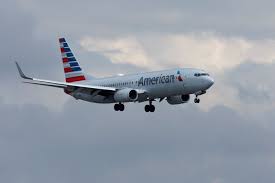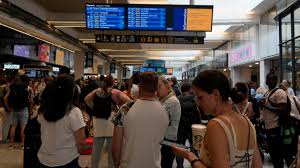American Airlines recently proposed a 17% wage increase for its flight attendants, aiming to avert the first airline strike in 15 years. Despite this offer, flight attendants remain unsatisfied, arguing that the raise is insufficient to address their concerns. As negotiations continue, the potential for a strike looms, posing significant challenges for the airline industry.
The Current State of Negotiations
CEO Robert Isom’s Proposal
American Airlines CEO Robert Isom sent a video message to flight attendants, proposing a 17% pay hike. This raise is intended to lift new flight attendants in Boston and Miami above food stamp eligibility, but the offer has not quelled the unrest among the workforce.
Flight Attendants’ Response
Flight attendants argue that the proposed wage increase falls short of their needs. They point to rising living costs, increased workloads, and the need for better working conditions as critical issues that the proposed raise does not adequately address.
Historical Context
Past Airline Strikes
The last major airline strike in the United States occurred 15 years ago, significantly disrupting the industry. The current standoff between American Airlines and its flight attendants is reminiscent of past labor disputes, highlighting longstanding issues within the airline industry.
Economic Pressures on Flight Attendants
Over the years, flight attendants have faced economic pressures, including stagnant wages and inflation. The proposed 17% increase, while a step in the right direction, is seen by many as insufficient to make up for years of financial strain.
The Economics of the Offer
Breaking Down the 17% Increase
The 17% wage hike proposal would raise the starting salary for new flight attendants, bringing them just above the threshold for food stamp eligibility. However, many seasoned attendants feel that the increase does not reflect their experience or the demands of their job.
Comparing Industry Standards
When compared to industry standards, American Airlines’ offer appears modest. Competitors may offer more competitive wages and benefits, making it challenging for American Airlines to retain experienced staff and attract new talent.
Flight Attendants’ Demands
Fair Compensation
Flight attendants are calling for fair compensation that reflects their responsibilities and the challenging nature of their work. They seek a wage increase that accounts for inflation and the cost of living in major cities where they are based.
Improved Working Conditions
In addition to better pay, flight attendants are demanding improved working conditions. This includes more manageable schedules, better support for dealing with unruly passengers, and adequate rest periods between flights.
Job Security
Job security is another significant concern. Flight attendants want assurances that their jobs will be protected and that they will have opportunities for career advancement within the company.
American Airlines’ Position
Financial Challenges
American Airlines cites financial challenges as a reason for the limited pay increase. The airline industry has been hit hard by the COVID-19 pandemic, and recovery has been slow. The company argues that it needs to balance fair compensation with financial sustainability.
Commitment to Employees
Despite these challenges, American Airlines maintains that it is committed to its employees. The proposed wage hike is part of broader efforts to improve employee satisfaction and retain talent.
The Role of Unions
Union Negotiations
Unions play a critical role in negotiating on behalf of flight attendants. They are advocating for better pay and conditions and have been instrumental in organizing collective bargaining efforts.
Union Influence
The influence of unions in this dispute cannot be understated. They have the power to mobilize workers and escalate the situation if negotiations do not result in a satisfactory agreement.
Potential Impact of a Strike
Disruption to Services
A strike by American Airlines flight attendants would lead to significant disruptions in services. Flights could be canceled or delayed, affecting thousands of passengers and causing a ripple effect across the airline industry.
Financial Implications
The financial implications of a strike are substantial. American Airlines could face significant losses, and the broader economic impact could affect related industries, including tourism and hospitality.
Comparing to Other Airline Disputes
International Labor Disputes
Labor disputes are not unique to American Airlines. Other airlines around the world have faced similar issues, with varying outcomes. Comparing these disputes can provide insights into potential resolutions and strategies.
Lessons Learned
Lessons from past airline strikes highlight the importance of early and effective negotiation. Airlines that have successfully navigated labor disputes have often done so by addressing worker concerns proactively and offering competitive compensation packages.
The Path Forward
Negotiation Strategies
For American Airlines, the path forward involves continued negotiations with flight attendants and their unions. Finding a middle ground that addresses employee concerns while ensuring financial viability is crucial.
Building Trust
Building trust between management and flight attendants is essential. Open communication, transparency, and a genuine commitment to employee well-being can help bridge the gap and foster a more collaborative work environment.
The proposed 17% wage increase by American Airlines is a step towards addressing flight attendants’ concerns, but it may not be enough to prevent a strike. As negotiations continue, the airline must find ways to offer fair compensation and improve working conditions to satisfy its workforce. The outcome of this dispute will have far-reaching implications for the airline industry and its labor relations.








